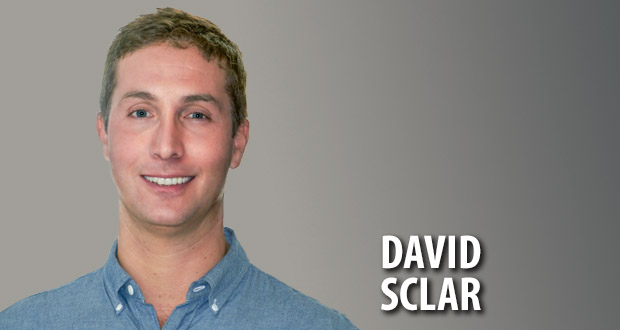David Sclar has just self-published the book he wishes he could have turned to for practical advice once his career course was set as in-house counsel guiding digital health and wellness companies on matters ranging from security and privacy to product development.
That book is “Workplace Strategies for Technology Lawyers.” Its subtitle, while a mouthful, reflects the down-to-earth insights Sclar seeks to convey: “36 Practical Tips on How to Communicate More Effectively, Work More Efficiently, and Give Better Advice as In-House Counsel at a Tech Company.”

“I wrote the book that I would have really wanted,” Sclar says.
He describes the landscape of books about working as an in-house lawyer as focusing on the “legal blocking and tackling” of the job — how to set up articles of incorporation or write offer letters for employees.
“That’s not the book I wanted to write,” Sclar says. “What I felt I needed to do was [help lawyers] understand how to do the job day to day.”
For example, the first issue the book addresses is how to give good, practical advice that provides decision-makers with solutions rather than issue-spotting.
“That is a skill set that doesn’t necessarily come naturally when you go in-house,” he says. “When you’re at a law firm, you’re typically dealing with a [corporate] lawyer who is bringing a legal question to you. In-house, you’re getting something from a business person who has questions you need to convert into legal issues and then solve.”
In Sclar’s view, good advice from an in-house lawyer provides guidance, closure and wiggle room. In explaining what he means by the latter, Sclar says it’s essential that the lawyer explain to the decision-maker the assumptions underlying any piece of advice and how changing circumstances may affect outcomes.
Some of the other topics he addresses in the book include how to avoid the “big mistake” and how to keep one’s head above water through effective management.
When a lawyer goes in-house, Sclar says, he has to prioritize getting to know the company he works for, the industry, the competition, the products and how those products are engineered.
“If you do that, you’re ahead of most of the in-house lawyers,” he says. “And often you’re ahead of other members of the business team who tend to focus on whatever is in front of them.”
Sclar also believes a tech lawyer needs to have a firm grasp of the “soft skills.”
“In contrast to being a law firm lawyer, when you’re working in-house, [advice] is given ‘quick and dirty,’” Sclar says. “You’re not shooting for an A-plus on everything. It’s fast, it’s judgment calls, it’s concise, it’s actionable. All of that is even more true at a tech company where things move so fast.”
Sclar sees his newly published book as particularly timely given that dealing with tech has become a universal part of the in-house lawyer’s job.
“In some ways, all companies are becoming tech companies or at least have a strong tech component,” he says. “Software is a service, and so much of what companies are looking for from vendors is software they can use over the internet.”
Sclar has been a member of the Massachusetts bar since 2007, the same year he graduated from Harvard Law School.
In August, he became the health care compliance and privacy officer for WW — the rebranded Weight Watchers. But COVID delayed his move to the company’s New York City office, forcing him to work remotely from his home in Washington, D.C.
“I’m probably the only person at WW working from D.C.,” Sclar says.
Before joining WW, Sclar spent more than six years as VP for business affairs and legal/chief privacy officer for the startup Rally Health. Other career highlights include stints as a health care/life sciences attorney at Ropes & Gray in New York City and Cooley in Washington.
“I don’t have a tech background, per se,” Sclar says. “I’ve had a very conventional past. I went the big law firm route before eventually going in-house.”
Sclar says he’s always had a strong interest in health, which evolved into a focus on “digital” health — or health care that harnesses new technology for diagnostic functions, behavioral monitoring, and identifying the right medical provider.
His current career focus grew naturally from his work with tech startups while at Cooley, he says.
“What I’m really focused on is actually working at a company whose products and services are based in technology,” Sclar says. “For me, to be a tech lawyer you have to be comfortable with the technology in terms of security, privacy, intellectual property and service levels.”
Sclar says he enjoys serving as a mentor and welcomes questions and feedback from other professionals via email at [email protected].
 New England Biz Law Update
New England Biz Law Update
